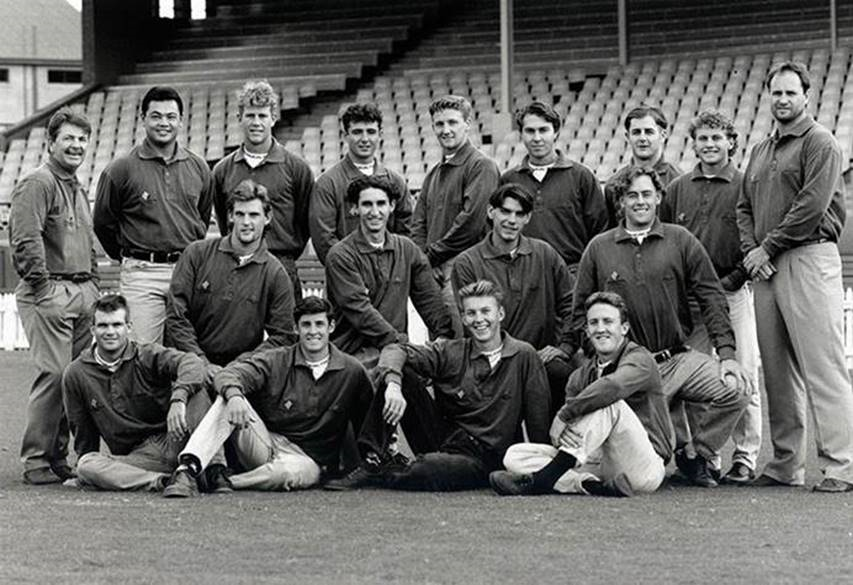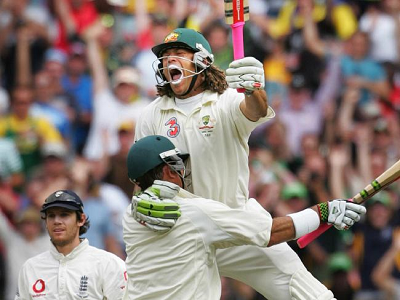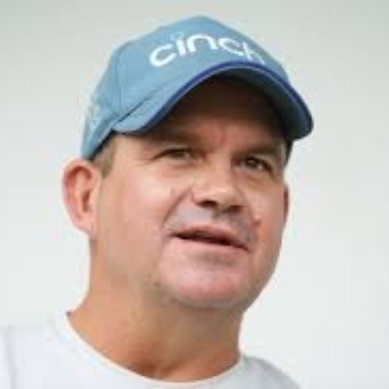Rod's rocket and Symo's freedom
Matthew Mott | June 06, 2023

To describe myself as a cricketer I would say I was a relatively limited player who got the best out of himself. Cricket has been great to me and I owe it so much for the amazing life I have been able to live. I have traveled the world and met great people who share a similar passion.
As a player, I always regarded as a resilient, solid player who always tried to do the best thing by the team. Playing junior cricket, I was a bit of slogger who, like most left-handers, favoured ‘cow-corner’ but over time coaches started to instill discipline and discretion into my game and I started scoring more regularly, albeit with a much more circumspect approach.
Growing up with Andrew Symonds was both a blessing and a curse at times. Symo as a youngster earned the nickname SAO which stood for ‘Six and Out’ which he often did. I loved the way Symo played and he stayed true to his younger self throughout his whole career. He was a bloke that epitomized the saying ‘he would rather die on his feet than live on his knees’. Whilst Symo took a long time to bear fruit for the Queensland Bulls, the selectors showed considerable faith which was repaid in spades. He finished his career as one of Australia’s greatest entertainers and had an excellent record but probably more significantly, he had a huge impact on matches won when he contributed.
As a coach now, I often think of Symo and I and always try to coach more like I am coaching Symo. When talking to players, I like to talk more about what they are capable of and less about what their limitations are. I certainly don’t blame coaches for the way that I played, but I would have to say that in many ways, they shaped the player I became. I had some fantastic junior coaches who put so much time into helping me progress through the ranks, but cricket was very different back then. There is still today huge value in players who put a high price on their wicket in Test Cricket, but generally, the modern-day player must be so much more prepared to make mistakes and be incredibly versatile to thrive in the modern game.

The greatest positive example I have of this as a player was when I went to the Cricket Academy in Adelaide and was coached by Rodney Marsh. Rod was my hero and the reason I changed from being right-handed to left-handed (at an early age), although things didn’t get off on the right foot. Close mate Jimmy Maher and I had a cameo visit two years prior to my stint and I missed a training session due to tonsillitis (not sure I needed Jimmy to nurse me though) and to say it didn’t go well is the king of understatements. Rod went berserk and questioned everything about both our characters, attitude and desire to be there. He wanted to send us home but thankfully the Brisbane EKKA was on and no flights were available. We stayed the rest of the week, albeit with our ‘tails well and truly between our legs’.
When asked to go back to the Academy I was naturally skeptical but decided to go and it was the best decision of my life. Twelve months with the best young cricketers in the country like Mike Hussey, Matthew Nicholson, Brett Lee, and Jason Gillespie, all who ended up playing Test Cricket, and being coached by the hardest but fairest coach I have seen, it was a life-changing time.
Saying Rod was ‘old school’ doesn’t even scratch surface. He was the grumpy school principal who everyone feared and didn’t want to get sent to for their moment of madness. I swear Rod didn’t say a word to me for the first three months and I thought he could stand me, then out of nowhere he called me into his office. Fearing the worst but to my utter surprise he said, ‘How would you feel about being Captain of this lot?’. After I picked my jaw up off the floor I said words to the effect of ‘I would be delighted’ but in truth, it was probably a lot less confident than that.
From that day on, my relationship with Rod took on a different dimension. I had earned his respect, he trusted me, and it taught me so much about coaching. I could never match Rod in terms of ‘tough love’ but it did teach me how to manage, praise and make people work hard to get your counsel and trust.
Rod was so far ahead of his time. When most coaches were talking to batters about grinding out scores of 220 in a day, being disciplined and conservative, Rod wanted us to try to score 400 runs in the day and he didn’t really care how we did it. The empowerment and positive re-enforcement around this aggressive approach shaped a generation of cricketers and this style of cricket permeated through all levels of cricket. This approach became the foundation of the ‘golden generation’ of Australian cricket where Australia was number one in the world for close to 16 years.
It was no coincidence that was my best and most fun year of batting. Batting with such freedom and clarity of thought made cricket so much fun. I played shots I had never dreamed of and it worked well and when it didn’t, Rod backed our intent the whole way. It didn’t mean you could be ‘reckless’ but Rod encouraged us to be fearless. This has impacted my coaching immensely and the word ‘fearless’ has become part of our team values in the Australian Women’s Cricket Team. It underpins all we do on and off the field and whilst this came from the playing group it resonated greatly with the approach we had been trying to instill for a few years.
Unfortunately, on my return to Queensland from the Academy after chasing a few wide balls and playing some indiscreet shots I reverted ‘back to type’. I was typecast back into the role as ‘nuggety, dependable and gritty opener’, a role that I accepted which was consistently re-enforced by coaches and senior players at all levels that I played. All except Symo, who kept saying ‘just whack it over cow mate’. Maybe the approach for my game was the right thing, but if I could change one thing it would have been to play with that freedom of my 12-year-old self that Rod had instilled in all of us and the one in which Symo lived and breathed.
So with all of this, when I coach, I think of those turning points and key moments in my own life and encourage players to push those limits, understand their limitations but implore them to ignore the inner voice of self-doubt. Be aggressive, back your ability and be the best version of yourself that you can possibly be.
There is always debate around former great players need to coach our players. To me it’s not that they are great players but whether they are great teachers. Rod Marsh was a great player but his legacy for Australian Cricket was in the fact he was a great teacher








